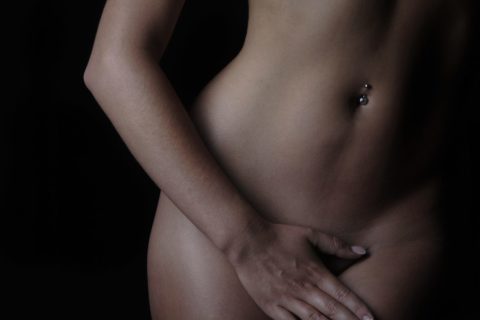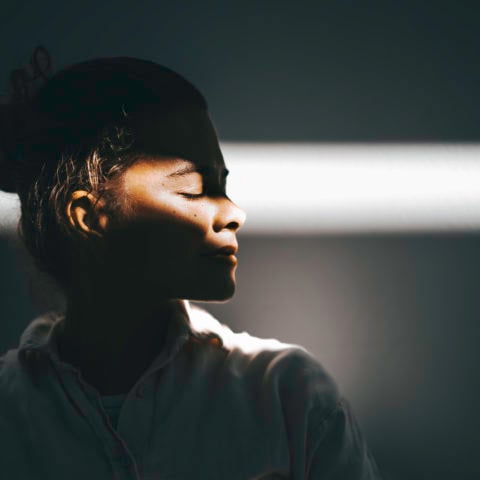Here’s why more women than ever are googling “Is my vagina normal?”

As a fitness professional, I’ve encountered a number of embarrassing issues at the gym (think: odours, rashes, blisters and, yes, the occasional passing of gas—damn you, downward dog). One of the biggest and more pervasive #fitproblems I deal with, though, is something I think all women can relate to inside and outside of the gym: camel toe (you know, when your pants ride up and expose the exact size and shape of your lady bits). I’m not a very self-conscious person, but when I’m holding a side plank in front of my class and my CT is OTT, I will immediately stop to readjust. The point is, we’re so accustomed to hiding any hint of our vaginas when, apparently, we should embrace it.
Khloe Kardashian recently met the issue face (or vaj) on, with a highlight reel devoted to her extensive experience exposing her bits, which she happily refers to as “Camille the Camel.” Kute. She also recently explained that her self-proclaimed “puffy pu—y” is on display far less often these days, thanks to her recent 30-pound weight loss. This made me think about “V” diversity: What is responsible for the unique sizes and shapes of our privates? And is there anything we can do reduce vaginal visibility (other than by wearing drop-crotch pants for the rest of our lives…tempting!)?
While I thought that my request for an interview about camel toe would come as a surprise to a doc, that wasn’t the case AT ALL. In fact, according to Dr. Yolanda Kirkham, an OB/GYN at Women’s College Hospital, there’s been an influx of questions about this issue. “Unfortunately, there is an increasing trend of patients who are concerned about their labia.” In addition to yoga pants, there are a few other modern-day trends that have thrust our lady lips into the spotlight: “Easy access to images of genitalia and the trends in hair removal have led to more awareness about this part of our bodies,” says Kirkham. Of course! Our all-access pass to porn has increased our exposure to images of female parts with a very specific aesthetic (though in my limited experience, I don’t remember ever relating to how they looked naked). Also, before the Brazilian bikini wax gained popularity, we never really had a full view of what we, and everyone else, looked like underneath it all. Now we see everything, making many women feel far more self-conscious of their unique forms.
Though Kirkham admits that weight loss—à la Ko-Ko—can make small changes to size, the most effective answer to altering the appearance of our privates is a surgery called labiaplasty, wherein the labia are surgically reduced (usually the labia minora, the inner lips). Despite its intense recovery and hefty price tag, stats show there has been a nearly 50 per cent increase in women interested in the procedure. Not just that, but the average age of surgical patients has decreased from 35 to 28 and the focus has shifted from medical issues to aesthetic preferences.
That’s kinda depressing, if you think about it—young women are so desperate to hide their silhouette below the belt that they’re willing to resort to surgery. An even more unpleasant thought: We’re generally more educated and accepting when it comes to penis diversity. “Although most people know about the variation in penis size, few people know that labia minora are unique in women, too,” explains Kirkham. Ugh, yet another thing to add to the #genderequality crusade.
As for how she helps patients learn to love their figure, Kirkham says it’s important to remember that all of our parts serve important functions: “The labia majora and minora are skin folds that enclose and protect the inner genitalia and are also very important for sexual arousal and pleasure.” Important information, indeed. “Most of the time, women just need reassurance that they are normal. Any variation in labia size is normal, and women should embrace their unique size and shapes.”
Finally, she reminds me that no one wants to be basic. “Hopefully, understanding that we are all unique, like our fingerprints, helps to allay any fears about being abnormal. Because wouldn’t the world be boring if we were all the same?” Now you’re speaking my language, doc. #FreetheV! Or, as Khloe says, #FreeTheCamelToe.








